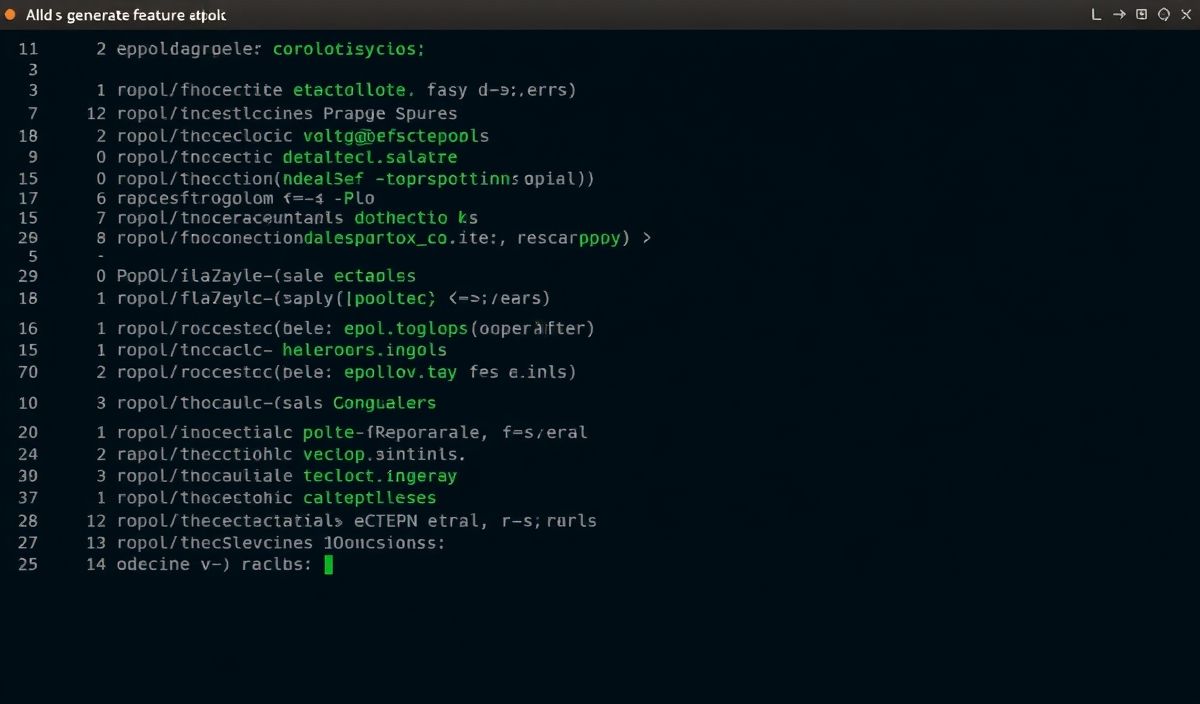Understanding and Utilizing epoll in Linux Efficiently for High Performance Application
The epoll API in Linux is a high-performance I/O event notification facility. It’s designed to handle large numbers of file descriptors, making it ideal for applications that require high concurrency, such as web servers or networked applications. This guide provides an introduction to epoll, explains some useful APIs, and presents code examples to help you get started.
Introduction to epoll
epoll stands for event poll and is the successor to the older poll and select system calls. It allows you to monitor multiple file descriptors to see if I/O is possible on any of them. The primary advantages of epoll over poll and select include better performance and scalability.
epoll API Overview
To use epoll, you need to become familiar with several key system calls:
epoll_create1()epoll_ctl()epoll_wait()
epoll_create1
The epoll_create1() system call creates an epoll instance and returns a file descriptor referring to that instance. Here is an example:
int epfd = epoll_create1(0);
if (epfd == -1) {
perror("epoll_create1");
exit(EXIT_FAILURE);
}
epoll_ctl
The epoll_ctl() system call is used to add, modify, or remove file descriptors from the interest list of an epoll instance. Here’s an example of adding and modifying a file descriptor to an epoll instance:
struct epoll_event ev;
ev.events = EPOLLIN;
ev.data.fd = fd;
if (epoll_ctl(epfd, EPOLL_CTL_ADD, fd, &ev) == -1) {
perror("epoll_ctl: add");
exit(EXIT_FAILURE);
}
ev.events = EPOLLOUT;
if (epoll_ctl(epfd, EPOLL_CTL_MOD, fd, &ev) == -1) {
perror("epoll_ctl: mod");
exit(EXIT_FAILURE);
}
epoll_wait
The epoll_wait() system call waits for events on the epoll file descriptor for a maximum time specified by the timeout argument. Here’s an example of using epoll_wait():
struct epoll_event events[MAX_EVENTS];
int nfds = epoll_wait(epfd, events, MAX_EVENTS, -1);
if (nfds == -1) {
perror("epoll_wait");
exit(EXIT_FAILURE);
}
for (int i = 0; i < nfds; i++) {
if (events[i].events & EPOLLIN) {
// Handle input event
}
if (events[i].events & EPOLLOUT) {
// Handle output event
}
}
Example Application Using epoll
Below is a simple example of a server application that uses epoll to handle multiple client connections:
#include <sys/epoll.h>
#include <unistd.h>
#include <fcntl.h>
#include <netinet/in.h>
#include <sys/socket.h>
#include <arpa/inet.h>
#include <string.h>
#include <stdio.h>
#include <stdlib.h>
#define MAX_EVENTS 10
#define PORT 8080
int main() {
int listen_fd, conn_fd, epfd;
struct sockaddr_in server_addr, client_addr;
socklen_t client_addr_len = sizeof(client_addr);
struct epoll_event ev, events[MAX_EVENTS];
listen_fd = socket(AF_INET, SOCK_STREAM, 0);
if (listen_fd == -1) {
perror("socket");
exit(EXIT_FAILURE);
}
int flags = fcntl(listen_fd, F_GETFL, 0);
fcntl(listen_fd, F_SETFL, flags | O_NONBLOCK);
server_addr.sin_family = AF_INET;
server_addr.sin_addr.s_addr = INADDR_ANY;
server_addr.sin_port = htons(PORT);
if (bind(listen_fd, (struct sockaddr*)&server_addr, sizeof(server_addr)) == -1) {
perror("bind");
close(listen_fd);
exit(EXIT_FAILURE);
}
if (listen(listen_fd, 10) == -1) {
perror("listen");
close(listen_fd);
exit(EXIT_FAILURE);
}
epfd = epoll_create1(0);
if (epfd == -1) {
perror("epoll_create1");
close(listen_fd);
exit(EXIT_FAILURE);
}
ev.events = EPOLLIN;
ev.data.fd = listen_fd;
if (epoll_ctl(epfd, EPOLL_CTL_ADD, listen_fd, &ev) == -1) {
perror("epoll_ctl: listen_fd");
close(listen_fd);
close(epfd);
exit(EXIT_FAILURE);
}
while (1) {
int nfds = epoll_wait(epfd, events, MAX_EVENTS, -1);
if (nfds == -1) {
perror("epoll_wait");
close(listen_fd);
close(epfd);
exit(EXIT_FAILURE);
}
for (int i = 0; i < nfds; i++) {
if (events[i].data.fd == listen_fd) {
conn_fd = accept(listen_fd, (struct sockaddr*)&client_addr, &client_addr_len);
if (conn_fd == -1) {
perror("accept");
continue;
}
fcntl(conn_fd, F_SETFL, O_NONBLOCK);
ev.events = EPOLLIN | EPOLLET;
ev.data.fd = conn_fd;
if (epoll_ctl(epfd, EPOLL_CTL_ADD, conn_fd, &ev) == -1) {
perror("epoll_ctl: conn_fd");
close(conn_fd);
}
} else if (events[i].events & EPOLLIN) {
char buffer[512];
ssize_t count = read(events[i].data.fd, buffer, sizeof(buffer));
if (count == -1) {
perror("read");
close(events[i].data.fd);
} else if (count == 0) {
close(events[i].data.fd);
} else {
// Handle incoming data
printf("Received message: %.*s\n", (int)count, buffer);
}
}
}
}
close(listen_fd);
close(epfd);
return 0;
}
With this example, you can set up a server that uses epoll to handle multiple clients concurrently and efficiently.
Hash: 503ce33bb0387d7d7755b0094012c89a05b0b63848987f7e86f70993e1ca7c52




